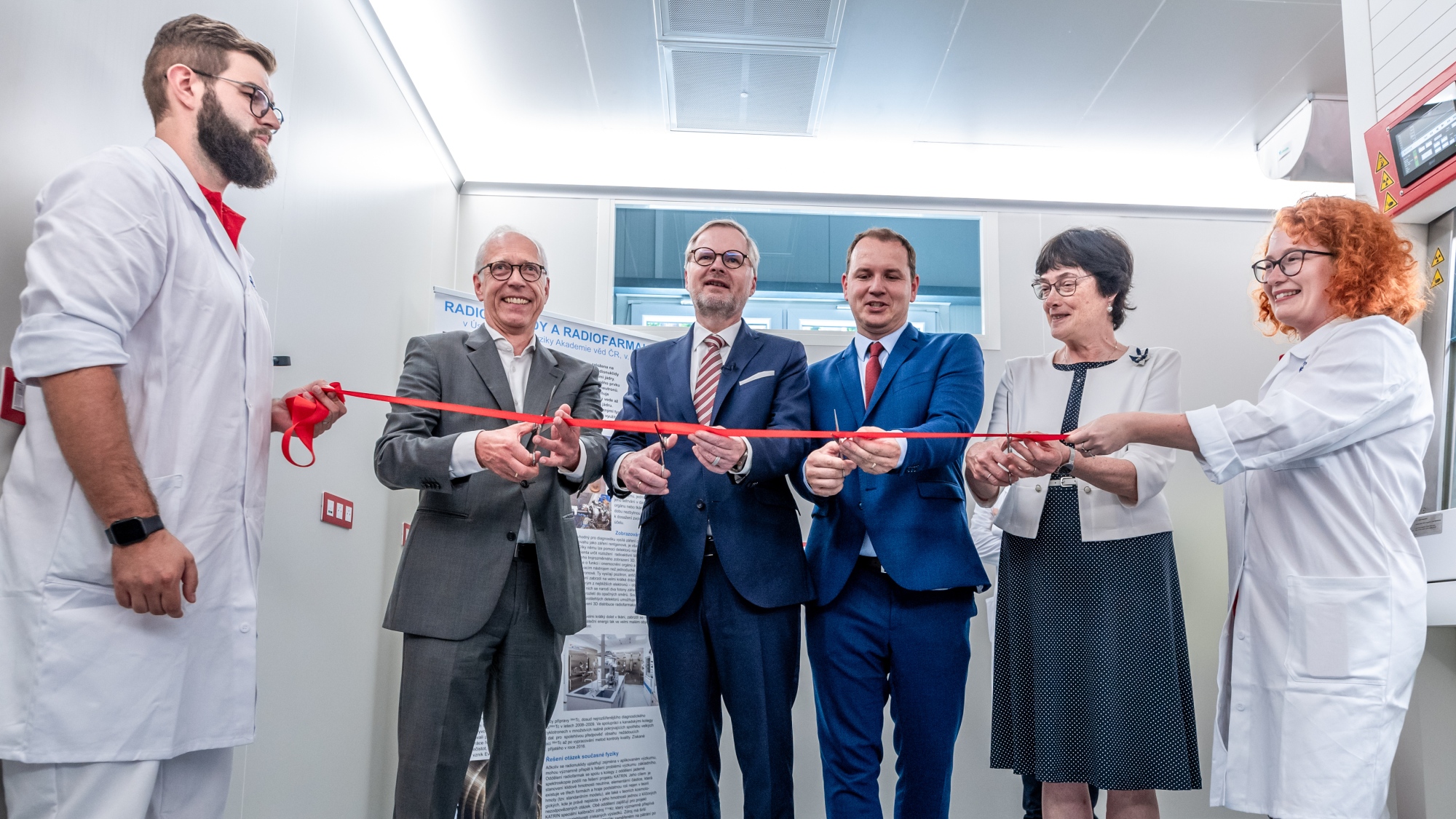
Prime Minister Petr Fiala opened the laboratory for the preparation of radionuclide 225-Ac for cancer treatment
Wed Jun 19 15:23:00 CEST 2024

Actinium-225 (225Ac), which has a high potential for the treatment of small tumours and metastases, could be produced in the future using a technology developed by Czech scientists. A laboratory with unique equipment was opened today at the Institute of Nuclear Physics of the Czech Academy of Sciences. It follows two years of cooperation between the team of top radionuclide expert Ondřej Lebeda and the German company Eckert & Ziegler Radiopharma. The company invested CZK 100 million in the development of the equipment and technology.
The laboratory in NPI will supply actinium-225 to the German partner as a raw material for the production of pharmaceuticals. In addition to the new laboratory, one of the particle accelerators, an essential research tool in nuclear physics, will be used to produce actinium-225.
The opening ceremony was attended by the Czech Prime Minister Petr Fiala, the CEO of Eckert & Ziegler Radiopharma Lutz Helmke and the President of the Czech Academy of Sciences Eva Zažímalová.
"The new laboratory of the Nuclear Physics Institute of the CAS is, in my opinion, a perfect synonym of successful knowledge and technology transfer: on the one hand, cutting-edge knowledge and innovative technologies, on the other hand, strong facilities and the support of a solid investor," says Eva Zažímalová, President of the CAS.
The radionuclide actinium-225 (225Ac) is one of the most promising sources of so-called alpha radiation used to treat cancer. "The question of its production is one of the key problems in nuclear medicine, which is being addressed by the world's largest research centres. Although its potential in experimental therapies is being demonstrated, e.g. for the treatment of prostate cancer, current methods of its preparation fall far short of the needs of the medical community," says Ondřej Svoboda, director of the Nuclear Physics Institute of the CAS.
Actinium-225 is able to release a high-energy cascade of particles with a very short range in tissue, which is less than 0.1 mm. "This makes it possible to target high doses of destructive energy to a small volume of tumour cells, including micrometastases, with minimal impact on the surrounding healthy tissue," explains Ondřej Lebeda, head of the Department of Radiopharmaceuticals. His team has been preparing alpha emitters since the late 1990s. Since 2004, he has been collaborating with Alfred Morgenstern's research group from the Institute of Transuranic Elements in Karlsruhe, Germany.
The cooperation agreement between the Nuclear Physics Institute of the CAS and Eckert & Ziegler was concluded at the beginning of May 2022, and negotiations on the project began in September 2021. Eckert & Ziegler, headquartered in Berlin and with production facilities in Europe and the USA, is one of the key manufacturers of medical radionuclides and nuclear medicine technology.
“We are proud to partner with the outstanding Czech scientists in the development of this breakthrough technology for the production of Actinium-225,” says Dr. Lutz Helmke, Managing Director of Eckert & Ziegler Radiopharma. “This partnership underscores our commitment to innovation and progress in nuclear medicine. We look forward to making Actinium-225 available on a large scale, opening up new possibilities in cancer treatment.”
The original report of the CAS can be downloaded here.

